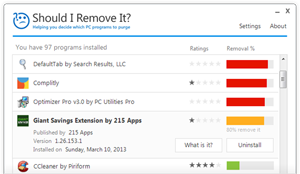Import table
advapi32.dll
RegCloseKey, AddAccessDeniedAceEx, AddAccessAllowedAceEx, OpenProcessToken, OpenThreadToken, SetSecurityDescriptorDacl, DuplicateToken, RegOpenKeyExW, RegQueryValueExW, RegDeleteValueW, RegSetValueExW, RegEnumKeyExW, RegEnumValueW, RegQueryInfoKeyW, InitializeSecurityDescriptor, CopySid, GetLengthSid, SetSecurityDescriptorOwner, SetSecurityDescriptorGroup, LookupAccountNameW, AddAce, GetAce, GetAclInformation, FreeSid, CheckTokenMembership, AllocateAndInitializeSid, CreateWellKnownSid, RegisterServiceCtrlHandlerExW, OpenServiceW, DeleteService, OpenSCManagerW, CreateServiceW, ChangeServiceConfig2W, CloseServiceHandle, SetServiceStatus, LookupAccountSidW, ConvertSidToStringSidW, InitializeAcl
api-ms-win-core-delayload-l1-1-1.dll
DelayLoadFailureHook, ResolveDelayLoadedAPI
api-ms-win-core-errorhandling-l1-1-0.dll
RaiseException, GetLastError, SetUnhandledExceptionFilter, UnhandledExceptionFilter
api-ms-win-core-errorhandling-l1-1-1.dll
GetLastError, UnhandledExceptionFilter, SetUnhandledExceptionFilter, RaiseException
api-ms-win-core-file-l1-1-0.dll
CreateFileW, GetDiskFreeSpaceExW, GetDriveTypeW, GetVolumeInformationW, FindVolumeClose, FindNextVolumeW, FindFirstVolumeW
api-ms-win-core-file-l1-2-0.dll
GetVolumePathNameW, GetDiskFreeSpaceExW, ReadFile, GetDriveTypeW, CreateFileW, GetVolumeInformationW, GetVolumeNameForVolumeMountPointW, FindVolumeClose, FindNextVolumeW, GetFileAttributesW, FindFirstVolumeW, GetVolumePathNamesForVolumeNameW
api-ms-win-core-handle-l1-1-0.dll
CloseHandle
api-ms-win-core-heap-l1-2-0.dll
HeapDestroy
api-ms-win-core-heap-obsolete-l1-1-0.dll
LocalAlloc, LocalFree
api-ms-win-core-interlocked-l1-1-0.dll
InterlockedExchange, InterlockedIncrement, InterlockedCompareExchange, InterlockedDecrement
api-ms-win-core-interlocked-l1-2-0.dll
InterlockedDecrement, InterlockedIncrement, InterlockedCompareExchange, InterlockedExchange
api-ms-win-core-io-l1-1-0.dll
GetOverlappedResult, DeviceIoControl
api-ms-win-core-io-l1-1-1.dll
DeviceIoControl, GetOverlappedResult
api-ms-win-core-libraryloader-l1-1-0.dll
LoadStringW, DisableThreadLibraryCalls, GetProcAddress, FreeLibrary, LoadLibraryExA
api-ms-win-core-libraryloader-l1-1-1.dll
FindResourceExW, GetModuleFileNameW, DisableThreadLibraryCalls, LoadResource, LoadLibraryExW, LoadStringW, SizeofResource, FreeLibrary, GetModuleHandleW, GetProcAddress
api-ms-win-core-localization-l1-2-0.dll
FormatMessageW
api-ms-win-core-memory-l1-1-1.dll
VirtualQuery, VirtualAlloc, VirtualProtect, VirtualFree
api-ms-win-core-misc-l1-1-0.dll
LocalFree, Sleep, LocalAlloc
api-ms-win-core-processenvironment-l1-1-0.dll
ExpandEnvironmentStringsW
api-ms-win-core-processenvironment-l1-2-0.dll
GetCommandLineW, ExpandEnvironmentStringsW
api-ms-win-core-processthreads-l1-1-0.dll
ResumeThread, GetCurrentThreadId, GetCurrentProcessId, TerminateProcess, GetCurrentProcess, OpenProcessToken, OpenThreadToken, SetThreadToken
api-ms-win-core-processthreads-l1-1-1.dll
TerminateProcess, ResumeThread, GetCurrentProcessId, SetThreadToken, OpenProcessToken, OpenThreadToken, GetCurrentThreadId, GetCurrentThread, GetCurrentProcess
api-ms-win-core-profile-l1-1-0.dll
QueryPerformanceCounter
api-ms-win-core-registry-l1-1-0.dll
RegOpenKeyExW, RegQueryInfoKeyW, RegEnumKeyExW, RegDeleteTreeW, RegSetValueExW, RegQueryValueExW, RegCreateKeyExW, RegEnumValueW, RegDeleteValueW, RegCloseKey
api-ms-win-core-string-l1-1-0.dll
MultiByteToWideChar
api-ms-win-core-string-l2-1-0.dll
CharPrevW, CharNextW
api-ms-win-core-string-obsolete-l1-1-0.dll
lstrcpynW, lstrcmpiW
api-ms-win-core-synch-l1-1-0.dll
LeaveCriticalSection, WaitForSingleObject, ResetEvent, CreateEventW, SetWaitableTimer, EnterCriticalSection, DeleteCriticalSection, InitializeCriticalSection, CancelWaitableTimer
api-ms-win-core-synch-l1-2-0.dll
InitializeCriticalSection, LeaveCriticalSection, DeleteCriticalSection, WaitForSingleObject, ResetEvent, CancelWaitableTimer, CreateEventW, Sleep, CreateWaitableTimerExW, EnterCriticalSection, SetWaitableTimer
api-ms-win-core-sysinfo-l1-1-0.dll
GetSystemTimeAsFileTime, GetTickCount, GetComputerNameExW
api-ms-win-core-sysinfo-l1-2-0.dll
GetSystemInfo, GetComputerNameExW, GetWindowsDirectoryW, GetVersionExW, GetTickCount, GetSystemWindowsDirectoryW, GetSystemDirectoryW, GetSystemTimeAsFileTime
api-ms-win-security-base-l1-1-0.dll
AdjustTokenPrivileges, DuplicateTokenEx, GetTokenInformation, CopySid, GetLengthSid, SetSecurityDescriptorOwner, SetSecurityDescriptorGroup, AddAce, GetAce, GetAclInformation, AddAccessDeniedAceEx, InitializeAcl, AddAccessAllowedAceEx, SetSecurityDescriptorDacl, IsValidSid, CreateWellKnownSid, AllocateAndInitializeSid, CheckTokenMembership, FreeSid, DuplicateToken, InitializeSecurityDescriptor
api-ms-win-security-base-l1-2-0.dll
InitializeAcl, AddAce, GetAce, GetAclInformation, SetSecurityDescriptorDacl, SetSecurityDescriptorGroup, CopySid, GetLengthSid, AddAccessDeniedAceEx, InitializeSecurityDescriptor, CreateWellKnownSid, AddAccessAllowedAceEx, FreeSid, IsValidSid, DuplicateTokenEx, AdjustTokenPrivileges, CheckTokenMembership, AllocateAndInitializeSid, GetTokenInformation, SetSecurityDescriptorOwner
clusapi.dll
AddClusterResourceDependency, OpenClusterResource, ClusterCloseEnum, OpenCluster, RemoveClusterResourceDependency, CloseClusterResource, ClusterResourceControl, CanResourceBeDependent, ClusterOpenEnum, ClusterGetEnumCount, GetClusterResourceState, OnlineClusterResource, OfflineClusterResource, ClusterResourceCloseEnum, ClusterResourceEnum, ClusterResourceGetEnumCount, ClusterResourceOpenEnum, ClusterEnum
kernel32.dll
GetVersionExW, GetSystemDirectoryW, RegCloseKey, GetCommandLineW, GetSystemWindowsDirectoryW, GetVolumePathNameW, RegQueryInfoKeyW, RegEnumValueW, RegEnumKeyExW, RegQueryValueExW, CreateWaitableTimerW, GetVolumeNameForVolumeMountPointW, GetVolumePathNamesForVolumeNameW, DelayLoadFailureHook, LoadLibraryW, LoadLibraryExW, GetCurrentThread, GetFileAttributesW, VirtualFree, ReadFile, VirtualAlloc, MultiByteToWideChar, FormatMessageW, RegOpenKeyExW, GetDiskFreeSpaceExW, DeviceIoControl, GetComputerNameExW, GetVolumeInformationW, FindVolumeClose, FindNextVolumeW, FindFirstVolumeW, ExpandEnvironmentStringsW, InterlockedExchange, InterlockedCompareExchange, QueryPerformanceCounter, GetTickCount, GetCurrentProcessId, GetSystemTimeAsFileTime, TerminateProcess, GetCurrentProcess, UnhandledExceptionFilter, SetUnhandledExceptionFilter, RaiseException, GetProcAddress, FreeLibrary, GetComputerNameW, GetDriveTypeW, lstrlenW, GetOverlappedResult, LocalAlloc, InterlockedDecrement, LeaveCriticalSection, EnterCriticalSection, InterlockedIncrement, DeleteCriticalSection, InitializeCriticalSection, LocalFree, WaitForSingleObject, ResumeThread, GetLastError, CloseHandle, SetLastError, CancelWaitableTimer, GetCurrentThreadId, DisableThreadLibraryCalls, SetWaitableTimer, Sleep, CreateFileW, CreateEventW, ResetEvent
msvcrt.dll
DllMain
netapi32.dll
NetApiBufferFree, NetLocalGroupGetMembers
ntdll.dll
WinSqmAddToStream, NtQuerySystemInformation, RtlInitializeBitMap, RtlNtStatusToDosError, RtlTimeToElapsedTimeFields, NtQueryVolumeInformationFile, RtlNtStatusToDosErrorNoTeb, RtlCompareMemory
ole32.dll
CoInitializeSecurity, CoCreateInstance, CLSIDFromString, CoDisconnectContext, CoInitializeEx, CoGetObjectContext, CoUninitialize, CoTaskMemAlloc, CoRevertToSelf, CoCreateGuid, CoImpersonateClient, CoTaskMemFree
setupapi.dll
SetupDiGetClassDevsW, SetupDiGetDeviceInterfaceDetailW, SetupDiEnumDeviceInterfaces, SetupDiGetDeviceRegistryPropertyW, SetupDiDestroyDeviceInfoList
shlwapi.dll
SHDeleteKeyW
user32.dll
LoadStringW
virtdisk.dll
GetStorageDependencyInformation
vssapi.dll
VssFreeSnapshotPropertiesInternal
Export table
DllCanUnloadNow
DllGetClassObject
DllInstall
DllRegisterServer
DllUnregisterServer
ServiceMain

